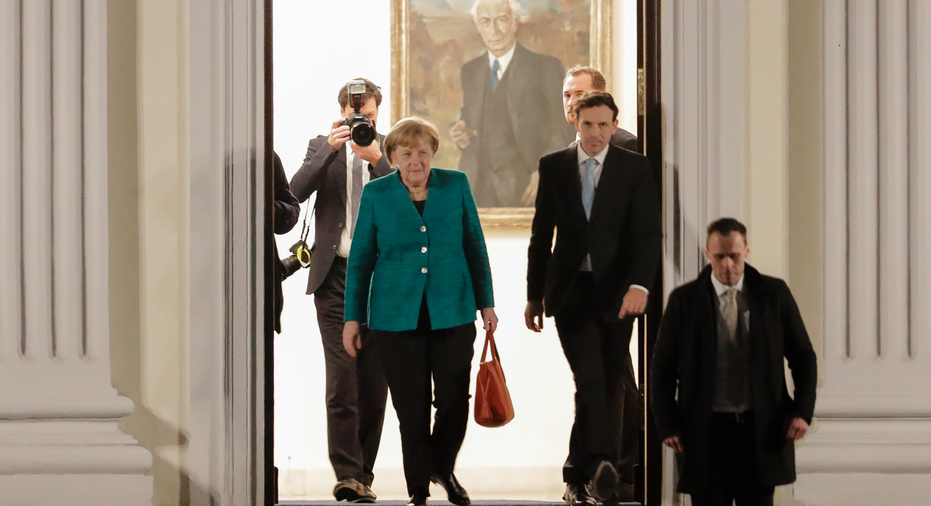German Social Democrats inch toward Merkel coalition talks

BERLIN – German Social Democratic Party leader Martin Schulz told reporters Friday his party will talk next week about whether to enter preliminary coalition talks with Chancellor Angela Merkel's conservative bloc, as well as other possible options in how to break an impasse on forming a new government.
After his party's disastrous result in the Sept. 24 election Schultz had ruled out forming another so-called grand coalition with Merkel's Christian Democratic Union and Bavarian-only sister party, the Christian Social Union, like the one that has governed Germany for the last four years.
After Merkel's negotiations to form a coalition with two smaller parties broke down, however, that left only a return to the grand coalition, a minority government, or new elections as her options.
Merkel's expressed skepticism about the latter two possibilities, and following an appeal from President Frank-Walter Steinmeier, Schulz agreed to meet with the chancellor and CSU leader Horst Seehofer on Thursday night to talk about the various possibilities.
Schulz told reporters Friday that they'd agreed to keep their discussions confidential, but that he was now prepared to discuss with his party's leadership on Monday all options, including re-forming a grand coalition.
Noting that his party and Merkel's bloc continue to govern as a caretaker government, he said "we have no time pressure" and would "not rule out any options."
He denied a report from Germany's top-selling Bild newspaper that the SPD had already given the green-light to negotiating a new coalition with Merkel, saying "there is no automatic OK for a grand coalition, I made that clear yesterday."
In a sign of the ongoing friction between Schulz and Merkel's bloc that may make negotiations difficult, he blamed the Bild report on a leak from her side and said he had telephoned her Friday to say it was "unacceptable."
"Whoever circulates false reports destroys trust," he said.
He said that the SPD leadership's decisions early in the week would be presented to other party members during a meeting next Thursday and Friday for approval.
Should it come to grand coalition negotiations, Schulz indicated he would push for the new government to become even more engaged at the European level, including standing behind French President Emmanuel Macron's push for broad reforms.
"Berlin cannot perpetually answer suggestions from the French president with a no," he said. "Germany must resume being a strong pro-European nation and not stay on the sidelines."



















